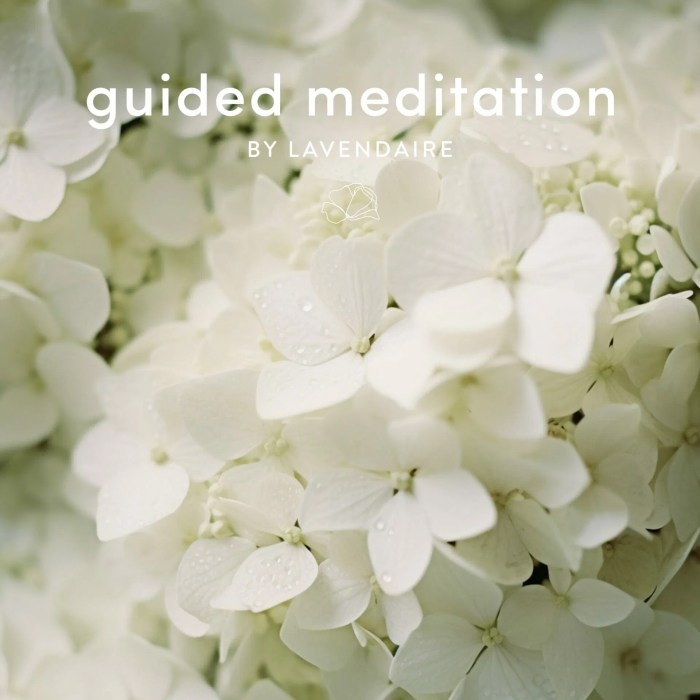Kicking off with How to Meditate for Finding Joy in Everyday Life, embark on a journey of self-discovery and tranquility. As we delve into the art of meditation, uncover the secrets to unlocking joy in the ordinary moments of life.
Introduction to Meditation for Finding Joy in Everyday Life

In today’s fast-paced world, where stress and anxiety seem to be constant companions, finding joy in everyday life can feel like a challenging task. This is where the practice of meditation comes in, offering a powerful tool to help us cultivate a sense of peace, happiness, and contentment.
Meditation is also known for its positive effects on mental health, particularly in combating depression. By practicing the top 7 ways meditation helps combat depression , individuals can experience reduced stress levels, increased self-awareness, and a greater sense of inner peace.
By definition, meditation is a practice that involves focusing the mind on a particular object, thought, or activity to train attention and awareness, ultimately achieving a mentally clear and emotionally stable state. When done regularly, meditation can have a profound impact on our overall well-being, including enhancing our ability to experience joy in the present moment.
The Importance of Mindfulness in Cultivating Happiness, How to Meditate for Finding Joy in Everyday Life
- Mindfulness is a key component of meditation that involves being fully present and engaged in the moment, without judgment or distraction. This mental state allows us to appreciate the simple pleasures of life and find joy in the little things.
- Practicing mindfulness through meditation helps us develop a greater sense of self-awareness, emotional regulation, and empathy towards others, all of which are essential for experiencing genuine happiness and contentment.
- Research has shown that mindfulness meditation can reduce symptoms of anxiety and depression, improve mood, and increase feelings of well-being and satisfaction with life.
How Meditation Can Help in Finding Joy Amidst Everyday Challenges
- Meditation helps us build resilience and cope with the inevitable ups and downs of life, allowing us to navigate challenges with a greater sense of calm and clarity.
- By cultivating a regular meditation practice, we can train our minds to focus on the positive aspects of life, fostering a mindset of gratitude and appreciation even in difficult circumstances.
- Through meditation, we learn to let go of past regrets and worries about the future, bringing our attention back to the present moment where true joy resides.
Setting the Scene for Meditation

Creating a peaceful and comfortable meditation space at home is essential for a successful practice. This space should be free from distractions and conducive to relaxation and focus. Setting intentions before starting a meditation session helps to guide your practice and bring clarity to your mind. Lighting, scents, and sounds can also play a significant role in enhancing the meditation experience, creating an atmosphere that promotes calmness and mindfulness.
For those facing long work hours, meditation can be a beneficial practice to maintain focus and productivity. Learn how to meditate effectively and stay focused during long work hours by incorporating short meditation breaks, deep breathing exercises, and mindfulness techniques into your daily routine.
Tips for Creating a Peaceful Meditation Space
- Avoid clutter: Keep your meditation space clean and organized to promote a sense of peace and tranquility.
- Add personal touches: Decorate your space with items that bring you joy and comfort, such as candles, cushions, or meaningful objects.
- Choose a quiet location: Find a quiet corner of your home where you can meditate without being disturbed by external noise.
The Significance of Setting Intentions
Setting intentions helps to focus your mind and bring awareness to your meditation practice. It allows you to cultivate a specific mindset or goal for your session.
Enhancing the Meditation Experience with Lighting, Scents, and Sounds
- Lighting: Soft, natural light or dim lighting can create a calming atmosphere for meditation. Consider using candles or fairy lights for a cozy ambience.
- Scents: Aromatherapy can enhance your meditation experience. Use essential oils like lavender or sandalwood in a diffuser to promote relaxation and mindfulness.
- Sounds: Playing gentle music, nature sounds, or white noise can help drown out distractions and create a soothing background for your meditation practice.
Techniques for Meditating to Find Joy: How To Meditate For Finding Joy In Everyday Life

When it comes to finding joy through meditation, there are several techniques that can help you achieve a sense of peace and contentment.
Mindfulness Meditation
Mindfulness meditation involves focusing on the present moment without judgment. By paying attention to your thoughts and sensations as they arise, you can cultivate a sense of awareness and acceptance that can lead to greater joy in everyday life.
When it comes to achieving your goals, meditation can be a powerful tool to help you stay focused and motivated. By following these 8 steps to meditate to achieve your goals , you can enhance your concentration and visualization skills, leading to improved goal-setting and attainment.
Loving-Kindness Meditation
Loving-kindness meditation, also known as Metta meditation, involves sending wishes of love, compassion, and goodwill to yourself and others. This practice can help cultivate feelings of kindness and empathy, leading to a deeper sense of connection and joy.
Gratitude Meditation
Gratitude meditation involves reflecting on the things you are grateful for in your life. By focusing on the positive aspects of your life, you can cultivate a sense of appreciation and joy for the present moment.
Deep Breathing Exercises
- Deep breathing exercises can help calm the mind and body, reducing stress and anxiety.
- By focusing on your breath, you can bring your attention to the present moment and find peace and joy in the simple act of breathing.
Visualization and Positive Affirmations
- Visualization involves imagining positive outcomes or scenarios, which can help create a sense of happiness and fulfillment.
- Positive affirmations are phrases or statements that you repeat to yourself to cultivate a positive mindset and boost self-confidence.
Incorporating Meditation into Daily Routine

When it comes to incorporating meditation into your daily routine, finding the time can be a challenge, especially in a busy schedule. However, establishing a consistent practice is key to reaping the benefits of meditation and cultivating joy in everyday life.
Making Time for Meditation
Here are some practical tips to help you make time for meditation:
- Start small: Begin with just a few minutes each day and gradually increase the duration as you become more comfortable with the practice.
- Set a schedule: Choose a specific time of day to meditate, whether it’s in the morning before starting your day or in the evening before bed.
- Eliminate distractions: Find a quiet space where you can focus without interruptions, even if it means waking up a bit earlier or finding a peaceful corner during your lunch break.
- Combine activities: Integrate meditation into daily activities like walking, cooking, or waiting in line by focusing on your breath or senses.
Consistency and Regular Practice
Consistency is key to experiencing the full benefits of meditation. By making meditation a regular part of your routine, you can enhance your overall well-being and cultivate a sense of joy in everyday life.
Consistent practice allows you to build a habit and deepen your connection with yourself, leading to a more profound sense of joy and contentment.
Integrating Short Meditation Sessions
Short meditation sessions throughout the day can help you stay grounded and cultivate joy in moments of chaos or stress. Here’s how you can integrate short meditations into your daily routine:
- Take a few deep breaths: Pause for a moment, close your eyes, and take a few deep breaths to center yourself and refocus your energy.
- Practice mindfulness: Engage in mindful activities like mindful eating, listening, or walking to bring a sense of joy and presence to your daily experiences.
- Use meditation apps: Utilize meditation apps or guided recordings to help you find moments of peace and joy throughout the day, even during short breaks.
Overcoming Challenges in Meditation Practice

Meditation practice can be incredibly rewarding, but it also comes with its fair share of challenges. It’s important to acknowledge these obstacles and learn how to overcome them in order to cultivate a sustainable and fulfilling meditation practice.
Common Obstacles to Meditation
- Restlessness and Racing Thoughts: It’s normal for the mind to wander during meditation, but constantly racing thoughts can be a major hindrance. To overcome this, try focusing on your breath or a mantra to bring your attention back to the present moment.
- Impatience and Frustration: It’s common to feel impatient or frustrated when progress in meditation feels slow. Practice self-compassion and remind yourself that meditation is a journey, not a destination. Be patient with yourself and trust the process.
- Physical Discomfort: Sitting still for an extended period of time can lead to physical discomfort. Find a comfortable meditation posture that works for you, and don’t be afraid to make adjustments as needed during your practice.
Role of Patience and Self-Compassion
- Patience is key in meditation practice. Understand that progress takes time and that each meditation session is an opportunity for growth, regardless of how it may feel in the moment.
- Self-compassion is essential in overcoming obstacles. Treat yourself with kindness and understanding, especially when facing challenges in your practice. Remember that it’s okay to have off days and that self-compassion is crucial for long-term consistency.
Strategies for Dealing with Distractions
- Labeling Thoughts: When distractions arise during meditation, try labeling them as “thoughts” and gently guiding your focus back to your breath or chosen anchor. This practice can help create distance from distracting thoughts.
- Setting Intentions: Before starting your meditation session, set clear intentions for your practice. This can help center your mind and provide a sense of purpose, making it easier to maintain focus throughout.
- Using Guided Meditations: If distractions persist, consider incorporating guided meditations into your practice. Guided sessions can provide structure and support, helping you stay focused and engaged.
In the realm of meditation, where stillness meets serenity, we have explored the path to finding joy in everyday life. May these practices guide you towards a deeper sense of contentment and happiness in each passing moment.